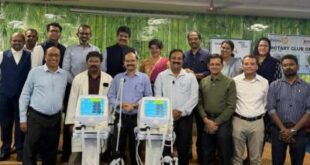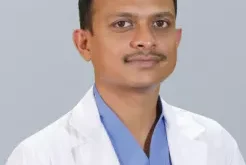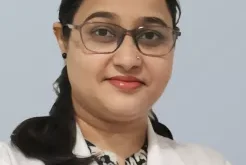Disc protrusion, often called a slipped or herniated disc, is a common disorder that affects up to 70% of people in the 30- to 60-year-old age range. Usually, an injury, severe strain, or aging-related spontaneous degeneration of the discs are the causes. It is one of the main causes of leg, back, and neck pain, this ailment is more common in men than in women.
An intervertebral disc protrudes when a tear in its more resilient outer layer allows the disc’s soft, gel-like center to press through. Nerve compression may result from this, which could cause limb weakness, tingling, numbness, and radiating pain. The cervical or thoracic spines in the neck or mid-back can also be affected, while the lumbar spine is the most common location.
The discs that lie between vertebrae serve as cushions, enabling motion and flexibility. But when these discs rupture or leak, the outcome is a herniated disc. In India, the condition is frequently associated with bad posture, extended sitting, heavy weight lifting, and an unhealthy lifestyle. Disc protrusions and hernias both result in pressure-induced structural failures, although they impact the body in distinct ways. Whereas hernias usually happen in the abdomen or groin, disc protrusions affect the spine. Though the pain and symptoms may be similar, many illnesses are different medically.
Diagnosing disc protrusion involves reviewing the patient’s medical history, conducting a physical examination, and using imaging tests like X-rays, MRI, or CT scans to assess the severity.
Conservative measures such as rest, activity reduction, pain management (NSAIDs, muscle relaxants), physical therapy, and hot/cold therapy are useful in treating minor disc protrusion. If these therapies are ineffective, more sophisticated options include spinal fusion, laminectomy, or microdiscectomy, which are surgical procedures intended to relieve pressure on nearby nerves and stabilize the spine, or epidural steroid injections, which provide short-term relief.
(Dr.Harshavardhan BR, Consulting Orthopedician, Ramakrishna Hospital Jayanagar, Bengaluru)
 Newspatrolling.com News cum Content Syndication Portal Online
Newspatrolling.com News cum Content Syndication Portal Online







